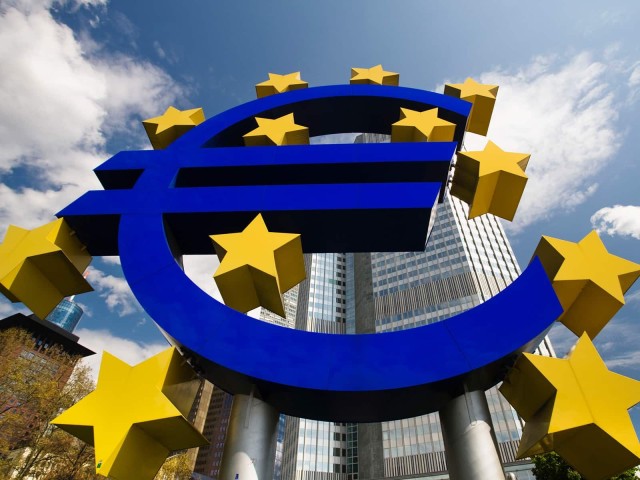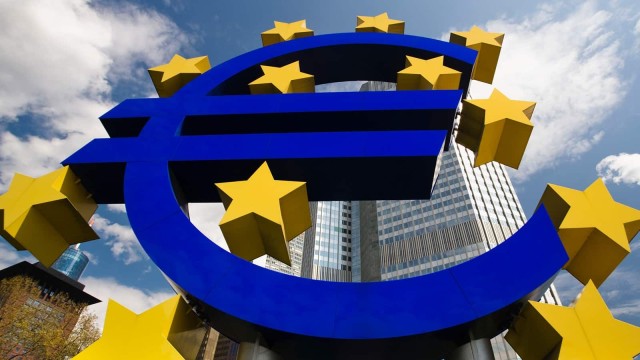July 04, 2025
The ECB celebrates – and for good reason
The ECB has done it, defying all the doom-mongering: it has successfully moored inflation to its 2% target.


To the point!

In June, inflation in both the Eurozone and Germany is expected to hit exactly 2%. A perfect landing!
For days, I deliberated on what the focus of this week’s column should be. Donald Trump’s looming “big, beautiful bill,” with its massive risks to public finances and what can only be described as a strikingly regressive redistribution of wealth – from the poor to the rich – was a strong contender. The ongoing heatwave and the growing economic toll of Europe’s drought also warrant serious analysis. But I fear there will be more opportunities this sum-mer to discuss these issues in detail.
2% inflation target achieved!
Instead, I’ve chosen a more uplifting topic: the European Central Bank (ECB). The doomsayers predicting that Europe was heading for a prolonged period of runaway inflation following the price shocks of 2022 have been proven wrong. The ECB has managed to pull inflation back to its target. In June, inflation in both the Eurozone and Germany is expected to hit exactly 2%. A perfect landing! In May, it even came in slightly below that level. All of this gives the ECB good reason to celebrate at its annual monetary policy seminar in charming Sintra.
Looking ahead, we expect inflation to remain near the 2% mark throughout the rest of the year – both in Germany and across the Eurozone. Upstream, inflationary pressures are minimal as import, producer, and wholesale prices hardly budge. The ECB has additional cause for relief: wage pressures are easing as well. Its wage growth index stood at 2.5% in the first quarter of 2025, the lowest level since 2021. Public anxiety about inflation is also subsiding (see Fig. 1) with inflation expectations gradually zooming in on the 2% target.
Fig. 1: Relative frequency of Google search „Inflation“
Searches in Germany
⬤ {series.name}: {point.y}
The recent rise of the Euro (see Figure 2) has also helped to rein in inflation by making imports cheaper. While I – like the broader community of economists – had considered parity between the Euro and the U.S. Dollar plausible before Trump’s reckless policies fully came to light, Europe’s central bankers are now growing increasingly uneasy about the strength of the Euro. Sources in Sintra worried that a Euro exchange rate above $1.20 could pose new challenges. A strong Euro puts pressure on Europe’s export-driven economy, slows growth, and suppresses prices. If the Euro strengthens further, the risk of inflation falling persistently below target would increase. The fact that the ECB is even discussing exchange rates in detail is quite revealing. Normally, the central bank downplays their importance, presenting them as just one among many factors steering monetary policy.
Overall, the discussions in Portugal support our view that the ECB will likely cut interest rates one final time – probably in September, bringing the deposit rate down to 1.75%.
Fig. 2: Exchange rate: Dollar per Euro
⬤ {series.name}: {point.y}
Reflecting on the past—almost no regrets
This year in Sintra, another item on the agenda was the recently concluded "Strategy Review" of the Eurosystem. This process saw ECB officials and experts from national central banks evaluate how monetary policymaking could be improved further. The resulting insights are presented in voluminous, if not always easily digestible, documents. Ultimately, the ECB seems to hold the view that it got things exactly right. And to a large extent, that’s true. I’m happy to join the chorus of congratulations.
That said, a little more self-criticism would have been welcome – particularly regarding the ECB’s expansive bond-buying programs, which, in hindsight, were arguably oversized. Still, a touch of nitpicking might have spoiled the unusually cheerful atmosphere in Sintra – one imagines it paired with bacalhau, vinho verde, and pastéis de nata.
Dr. Moritz Kraemer, Chefvolkswirt und Leiter Research
Download To the point!
-
273.4 KB | July 04, 2025
This publication is addressed exclusively at recipients in the EU, Switzerland, Liechtenstein and the United Kingdom. This report is not being distributed by LBBW to any person in the United States and LBBW does not intend to solicit any person in the United States. LBBW is under the supervision of the European Central Bank (ECB), Sonnemannstraße 22, 60314 Frankfurt/Main (Ger many) and the German Federal Financial Supervisory Authority (BaFin), Graurheindorfer Str. 108, 53117 Bonn (Ger many) / Marie-Curie-Str. 24-28, 60439 Frankfurt/Main (Germany). This publication is based on generally available sources which we are not able to verify but which we believe to be reliable. Nevertheless, we assume no liability for the accuracy and completeness of this publication. It conveys our non-binding opinion of the market and the products at the time of the editorial deadline, irrespective of any own holdings in these products. This publication does not replace individual advice. It serves only for informational purposes and should not be seen as an offer or request for a purchase or sale. For additional, more timely in-formation on concrete investment options and for individual investment advice, please contact your investment advisor. We retain the right to change the opinions expressed herein at any time and without prior notice. Moreover, we retain the right not to update this information or to stop such updates entirely without prior notice. Past performance, simulations and forecasts shown or described in this publication do not constitute a reliable indicator of future performance. The acceptance of provided research services by a securities services company can qualify as a benefit in supervisory law terms. In these cases LBBW assumes that the benefit is intended to improve the quality of the relevant service for the customer of the benefit recipient. Additional Disclaimer for recipients in the United Kingdom: Authorised and regulated by the European Central Bank (ECB), Sonnemannstraße 22, 60314 Frankfurt/Main (Germany) and the German Federal Financial Supervisory Authority (BaFin), Graurheindorfer Str. 108, 53117 Bonn (Germany) / Marie-Curie-Str. 24-28, 60439 Frankfurt/Main (Germany). Deemed authorised by the Prudential Regulation Authority. Subject to regulation by the Financial Conduct Authority and limited regulation by the Prudential Regulation Authority. Details of the Temporary Permissions Regime, which allows EEA-based firms to operate in the UK for a limited period while seeking full authorisation, are available on the Financial Conduct Authority’s website.



